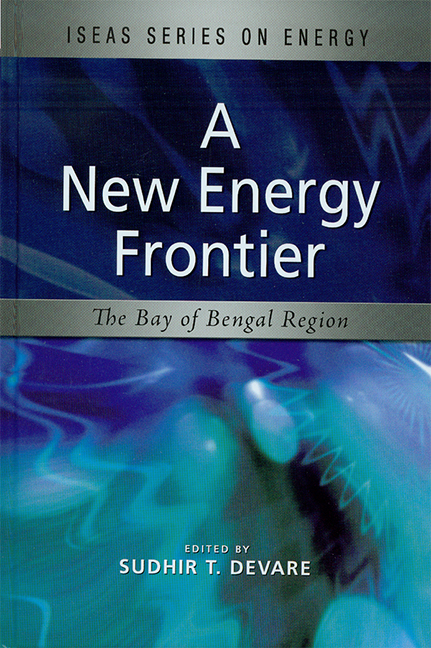Book contents
- Frontmatter
- Content
- Foreword
- Message from the Director
- Preface
- The Contributors
- 1 An Overview of the Energy Scene in the Bay of Bengal Region
- 2 Current and Expected Energy Production and Consumption within the Bay of Bengal Region: A Synopsis
- 3 Gas Potential at the Bay of Bengal and Implications for India's Energy Security
- 4 Macroeconomic Challenges for the Growth of the Energy Sector in Bangladesh in the Context of Regional Integration
- 5 Energy in the Bay of Bengal Region: Myanmar's Perspective
- 6 Marine-related Energy Resources in the Eastern Indian Ocean: Indonesian Perspective
- 7 Energy Trading and Singapore's Role as a Hub
- 8 Bay of Bengal: Awakening of a Potential Giant Area
- 9 Energy Transportation Security in the Bay of Bengal
- 10 Ethical Business Practice or Camouflage? Energy and Mining Companies and Corporate Social Responsibility
- 11 Sustainable and Renewable Energy: Scenarios for the Future
- Index
2 - Current and Expected Energy Production and Consumption within the Bay of Bengal Region: A Synopsis
Published online by Cambridge University Press: 21 October 2015
- Frontmatter
- Content
- Foreword
- Message from the Director
- Preface
- The Contributors
- 1 An Overview of the Energy Scene in the Bay of Bengal Region
- 2 Current and Expected Energy Production and Consumption within the Bay of Bengal Region: A Synopsis
- 3 Gas Potential at the Bay of Bengal and Implications for India's Energy Security
- 4 Macroeconomic Challenges for the Growth of the Energy Sector in Bangladesh in the Context of Regional Integration
- 5 Energy in the Bay of Bengal Region: Myanmar's Perspective
- 6 Marine-related Energy Resources in the Eastern Indian Ocean: Indonesian Perspective
- 7 Energy Trading and Singapore's Role as a Hub
- 8 Bay of Bengal: Awakening of a Potential Giant Area
- 9 Energy Transportation Security in the Bay of Bengal
- 10 Ethical Business Practice or Camouflage? Energy and Mining Companies and Corporate Social Responsibility
- 11 Sustainable and Renewable Energy: Scenarios for the Future
- Index
Summary
The Bay of Bengal region is extremely diverse in its energy resource endowment. At one extreme there is Singapore, an island city state with no hydrocarbon or hydropower resources whatsoever. At the other extreme are India, Myanmar and Bangladesh with considerable hydrocarbon and hydropower resources.
This chapter summarizes the current energy situation — production, consumption, imports and exports — within the Bay of Bengal region and discusses the outlook over the next twenty-five years. Most of the data is for 2004, the latest available at the time of writing from the Energy Information Administration (EIA) and International Energy Agency (IEA). Though fragments of later data were coming available, for the sake of comparability, the author opted generally to employ 2004 data throughout.
Total Energy Consumption and Economic Growth
The greatly different geographical scale and resource endowment of these countries, in combination with historical and political factors, have meant that they differ considerably in terms of economic development. Several are pre-industrial. For example, in Myanmar, Nepal and Bhutan, the agricultural sector accounts for over a third of GDP (see Table 2.1). On the other hand, in Singapore, Sri Lanka, Bangladesh and India, the service sector accounts for over half of GDP. It must be noted, however, that these are merely generalizations because most of these economies have large informal sectors which are not captured in national data.
Over time, it can be expected that the agricultural sector in all of these economies will reduce in size while the manufacturing and service sectors will expand. Fewer people will live in rural areas and grow crops. Many of the young people from the existing rural households will seek in the urban areas of their countries higher paying and less physically demanding employment, as well as better schooling and facilities, in turn, for their children. This is related to Engel's Law, that is, as income increases, the proportion spent on food decreases. As this occurs, there is a trend towards greater provision of services. People living in urban areas need to create employment, tend to earn more money and can afford to spend it on an increasingly wide variety of services ranging from healthcare to travel.
- Type
- Chapter
- Information
- A New Energy FrontierThe Bay of Bengal Region, pp. 16 - 35Publisher: ISEAS–Yusof Ishak InstitutePrint publication year: 2008



